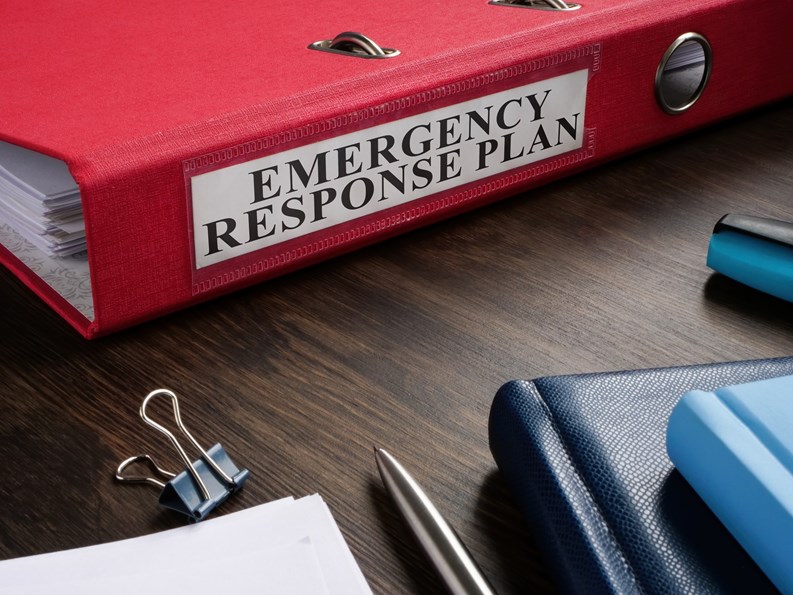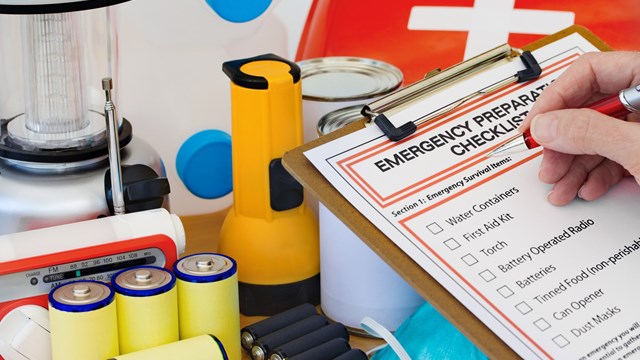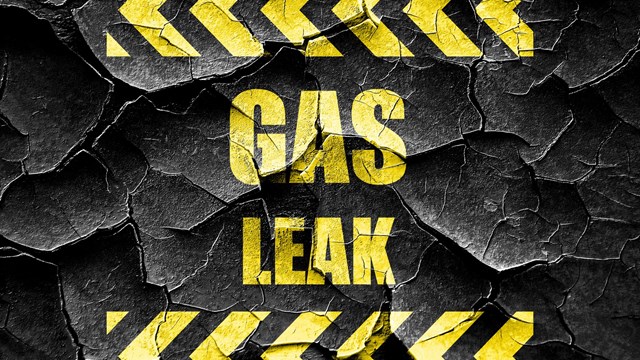The acceleration of global warming and the accompanying climate crisis is affecting shared-interest residential communities all over the United States and around the world. This past September was the wettest ever recorded in the eastern United States, with nine times the normal rainfall. Scientists warn that excessive rain and wind, extreme heat and cold, as well as increasingly intense discrete weather events like hurricanes and tornadoes, will continue and likely worsen as the planet continues to heat. Many co-ops, condominiums, and HOAs now need to plan for weather conditions much more extreme and erratic than in the past. The physical health of their communities may well depend on it.
Paying Attention to the New Reality
Doug Weinstein, senior vice president for operations at AKAM Management, with offices in Florida and New York, advises clients to proactively assess their properties for natural disaster preparedness. “This entails conducting a thorough study to ensure readiness for various potential events. In South Florida,” he notes, “our main climate concern has long been hurricanes. However, the landscape has evolved. Now, we are also contending with non-hurricane weather events that lead to flooding, and to excessive heat, and how that is impacting properties. For hurricanes, we thoroughly examine various aspects of the building to identify areas which can be made more secure. While there are many codes and retrofitting measures in place to address this, we specifically focus on understanding how each property can be impacted by not only the rain, but the force of high winds and storm surges associated with hurricanes.”
Additionally, climate-related issues are having a profound impact on the ways multifamily buildings and HOAs plan for emergencies. “The increasing frequency and severity of floods, storms, severe heat waves, wildfires, and related smoke are forcing them to reassess their emergency preparedness strategies and adapt to a changing climate,” says Skip Richardson, branch president for Associa, Florida. “Rising sea levels and intense rainfall are leading to more frequent and severe floods in many regions. Multifamily buildings and HOAs are investing in flood-resistant infrastructure, elevated foundations, and flood barriers to mitigate damage. Emergency evacuation plans with designated shelter areas and transportation arrangements are being updated to improve the safety of residents.”
Stuart Fish, a manager with Choice of New York, a management company based in New York City, doesn’t mince words: “Climate change is real, and is happening in real time,” he says. “The changes are faster than anticipated ten years ago, and continue to worsen each year. Owners must implement comprehensive drainage and water removal plans to protect their properties. These plans often include rain gutters and leaders, additional cleaning of drains and sump pumps to keep water out of vulnerable areas such as boilers and heating equipment. Other options include raising equipment 18 to 24 inches off the ground. Education and prevention awareness is key for residents, particularly for those living on the ground floor or below grade.”
Planning for the Future
The urgency of climate-related disasters has made both boards and managers more attentive to potential problems. But planning for such eventualities is a new challenge. How are managers handling these situations?
A good way for communities to begin evaluating their risk is to have a conversation with their managing agent and property manager before the next big storm. Discuss storm preparedness, what additional resources may be needed before, during, or after heavy weather, and how water runoff might affect their street, building, or basement. Review recent historical weather data. Consult with a professional engineer or plumber to improve drainage and develop new strategies to divert water and avoid sewage backup.
“Multiple resources are available,” says Bruno Bartoli, director of management services for Evergreen Management, based in Manchester, New Hampshire. “Insurance companies are typically the best resource as they have data on the most common climate-related issues in your area. They also offer solid planning tips for these issues. If you can demonstrate that you are following them, it can result in discounted annual premiums.” Bartoli also suggests that managers “consult with specialized vendors in their area who are used to extreme weather conditions to learn what can be done to protect property.”
“One of the biggest issues,” says Scott Wolf, CEO of BRIGS, a management firm located in Boston, “is budgeting for insurance increases resulting from increases in claims all over the country due to climate-related events. These increases—and they are sizable—are happening everywhere. We didn’t have a Lahaina fire or a New York flood, but those events impact us here in Boston nevertheless.”
“The increasing frequency of climate-related disasters is also affecting insurance premiums,” explains Richardson. “Multifamily buildings and HOAs are reevaluating their insurance coverage and seeking policies that provide comprehensive protection against climate-related risks. Financial reserves and emergency funds are being established to cover unforeseen costs associated with climate emergencies.”
“We guide our clients in conducting assessments to determine the building’s readiness for specific perils,” says Weinstein. “For example, let’s consider generators. Florida’s building code mandates that high-rise residential buildings have emergency power generators, and many of these generators are located below sea level in older properties. New codes in Florida stipulate that older buildings must install generators above sea level when replacing them, but figuring out where to put them can be a separate challenge, which we help work through with buildings.”
Potential Liability
Another potentially explosive problem related to climate crises is the possibility of liability exposure on the part of the association or corporation.
“Legal concerns revolve around insurance in Florida,” says Weinstein. “Policies contain a clause that highlights the importance of maintaining a property—failure to do so may lead to a denial of claims. This underscores the crucial responsibility of property owners to proactively maintain their properties and take measures to minimize the potential for a loss.”
“You may also face liability when your property floods your neighbor,” adds Fish. “For example, if your drains are clogged and the backflow causes damage to your neighbor’s home. You can also face liability from homeowners or landlords in your building if they claim you failed to take adequate steps to prevent or minimize water-related damage resulting from excessive rain and heavy weather. We know of a situation where a large, national developer was building a 30-story rental building directly adjacent to an existing 8-story condominium. The gutters and leaders of the construction site were installed so that they drained directly onto one roof of the smaller condominium.” Needless to say, that was a huge problem for the condo residents—and a big legal headache for the developer.
Simply ignoring climate-related events isn’t an option, and doing so can be costly for a homeowners association. “Not preparing for events increases the chance of damage, and insurance companies may deny resulting claims,” says Bartoli. “Homeowners might also take legal action against the association and board of directors for failing to properly protect life and property. In extreme climate-related conditions, there are no 100% safe and secure methods—there are simply too many variables. But just as the association must be proactive in helping prevent incidents, homeowners bear the same responsibility.”
Being Proactive
In light of the rapidly evolving situation, it is incumbent on both boards and management to keep owners, shareholders, and residents well informed of both short-term and long-term risks and situations. Communication is key.
“In the event of an impending heat wave, we promptly communicate with residents and keep them informed of the expected high temperatures, as well as providing resources for those who may require medical assistance, especially in any extreme conditions,” says Weinstein. “Given the possibility of power outages, it’s crucial for us to have a list of residents that are dependent on electrical medical equipment so we can aid those in need, and also enable first responders in these situations. Moreover, it’s important for residents to understand that if they plan to be away from their apartment for an extended period of time, they can’t simply turn everything off and expect to find it in the same condition several months later. Educating residents about this process is an essential part of our preparedness efforts.”
“Climate-related issues are fundamentally changing the way multifamily buildings and HOAs plan for emergencies,” says Richardson. “By investing in resilient infrastructure, enhanced communications, evacuation plans, and educating residents in advance, these communities are striving to ensure the safety and well being of their residents in an increasingly unpredictable climate.”
A J Sidransky is a staff writer/reporter for CooperatorNews, and a published novelist. He may be reached at alan@yrinc.com.










Leave a Comment